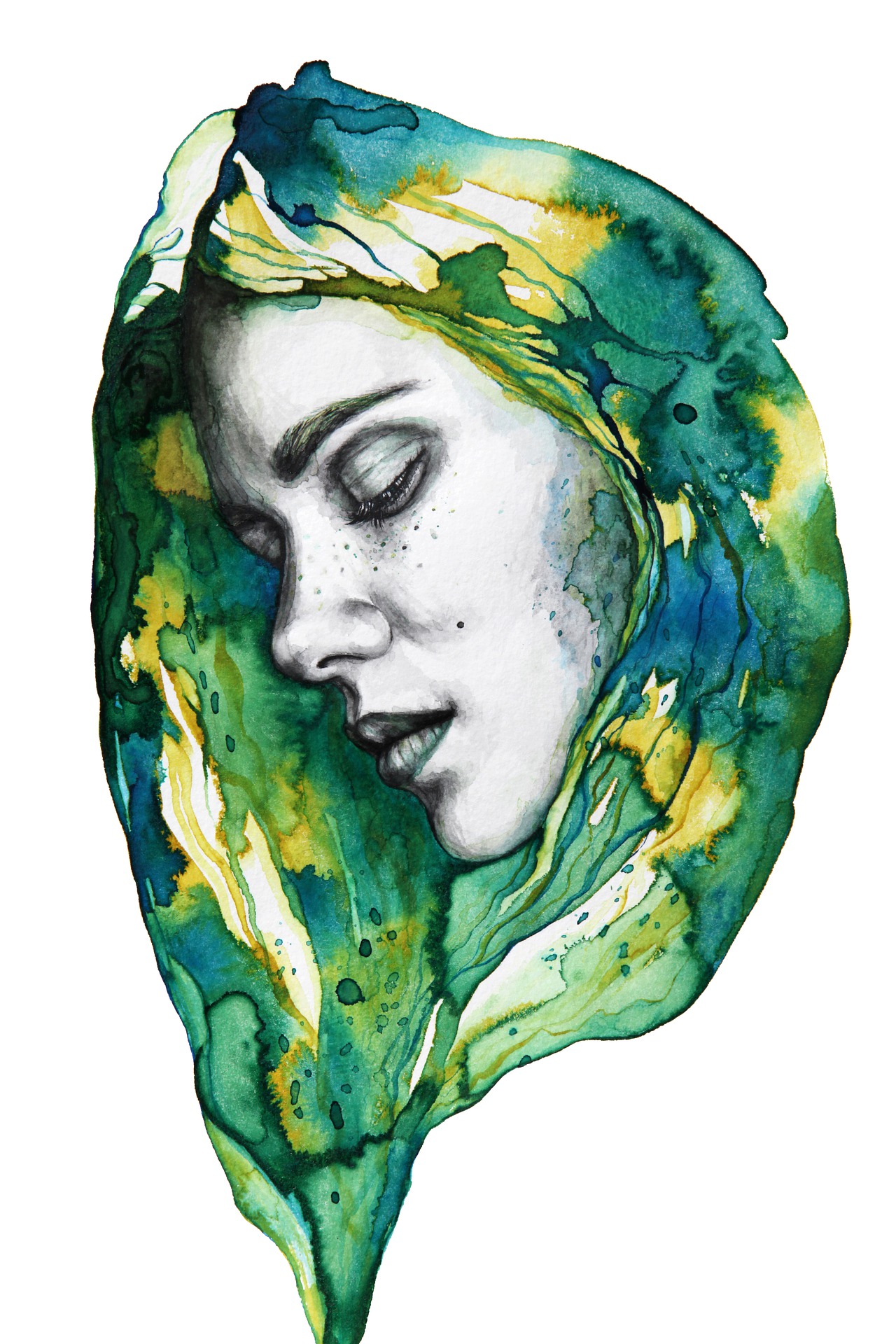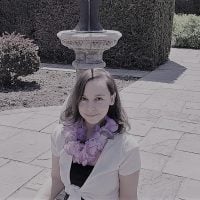I was 10 years old when I asked my only living grandmother a rather profound question.
During one of our visits, we sat together in the family room and found ourselves immersed knee-deep in a conversation regarding the nature of human existence.
Stopping for some air, we paused before I looked at her and asked, “What if this is all just a dream that we wake up from after we die?”
I was an inquisitive child, always wanting to know not only how but why things happened to us and often pondered the more challenging philosophical questions of life.
At the time, I attended a Catholic school due to my mother, who was raised in a Roman Catholic household. Her own mother, whom I lovingly referred to as Nonna, was born and grew up in the South of Italy and never lost touch with that part of her identity even after she emigrated to Canada in 1958.
I remember the walls covered in portraits of Christ, rosaries hanging on the hooks and depictions of the The Last Supper near the doorway. Somehow, all of this religious imagery stirred in me a love for Jesus.
As I stared at the portrait of Christ on Nonna’s wall, I noticed a light surrounding his heart, and at that moment, understood him to be a symbol of an unwavering compassion for humanity. I gazed into his eyes and saw a gentleness that, even at that young an age, touched me.
Although my father’s mother had roots in Croatia, with 86.28 percent of the population being Roman Catholic (according to a 2011 census), she had long decided that anything associated with being non-white-Anglo-Saxon Protestant was shameful and effectively negated discussing that part of who she was. For the majority of her adult life, she hid behind her husband’s Anglo surname, dyed her hair blond, and made friends with mainly white-Anglo-Saxon Protestant people.
Uncomfortable with my question, she responded vaguely, “I don’t know”.
Of course, that answer only increased my curiosity and set me on a lifelong quest to keep on asking the so-called “tougher questions.”
With time, I ventured out of the confines of the religion of my early childhood years and developed an interest in Eastern philosophy. I began to consider the possibility that we’ve lived before, as different characters across different places and times. I read stories of small children having flashbacks of past lives and felt, on some visceral level, that I myself may have walked on this earth before.
Nothing, it seemed, satiated my desire to answer that golden question: who and what are we, really, and why are we here?
Starting at the age of 14, I developed a fear of death—my own, in particular. I sometimes lay awake at night after jolting from the edge of sleep, wondering whether the moments leading up to death felt anything similar, fearing what it felt like to physically shut down.
This is crazy, I thought to myself. I know I believe in something beyond this life, so why am I so scared? I couldn’t seem to reconcile my belief in an afterlife with my morbid fear of death itself, and this state of cognitive dissonance haunted me.
What is eternity? I asked myself, and how can we even begin to wrap our heads around it when temporariness is all we know? Besides, I thought to the contrary, what if there really is nothing beyond this and we just cease to exist? How can we be so alive one moment and disintegrate into an infinite void?
Those were the kinds of questions that kept me awake at night.
Meanwhile, around that same age, my friend Don, whom I had met in an NDE (near-death experience) group on Facebook, already cultivated the stillness required to remain in a deep meditative state for up to a few hours each day and had told himself that he was not his feet, his arms, or his toes. After having what he felt may have been his first out-of-body experience at age 10 or 11, he caught a glimpse into the light.
When I first spoke with Don a month ago, I was eager to know whether or not everything I had previously read regarding near-death experiences and journeying to the afterlife was, in fact, true in his experience.
Five years ago, I read a book by Dr. Michael Newton, PhD, titled Journey of Souls: Case Studies of Life Between Lives, and it immensely impacted my understanding of our experience here. In this book, Newton records the recollections of 29 cases who, under a special hypnosis technique, remembered their existence between one lifetime to the next. It was after reading this book that I stumbled upon the concept of different levels of souls, when and how we learn to recognize soulmates on Earth, and the purpose of the human experience.
At the age of 10 or 11, Don remembers falling through cracks of ice on a small pond in his backyard. Shortly after plunging into the freezing water, he found himself engulfed in a pink and white light. He then recalled how he felt embraced by love, which seems common to many, if not most, of the near-death experiences I have heard and read by other people.
Don does not remember how he got out of the water but believes, perhaps, that some power or force pulled him out of it. Suddenly, he found himself wrapped in a towel on his mother’s bed. That was his first NDE experience. The second happened at the age of 19, after someone pointed a gun between his eyes, at which point he felt his soul leave his body instantaneously.
Of course, any skeptic could argue that the initial shock and fear alone could have caused him to disassociate, but this was not the first near-death account I’d heard. Years ago, I met a woman who recalled observing her dead body resting in a hospital bed from the ceiling as she watched doctors and emergency medical staff attempt to resuscitate her. She too mentioned feeling her soul being ushered from the top of her head and into the light where she could feel herself lifted into the arms of an all-encompassing love.
She heard music—almost like an angelic chorus playing softly in the background—and was met by spiritual mentors and previously deceased loved ones who eventually told her that it was not her time yet and that she must return. A year or so later, I heard a similar account relayed to me by a woman who was pronounced clinically dead following an accident.
Although my fear of dying did not cease entirely, I firmly believe that I met these people for a reason and their accounts did assure me that more than likely, consciousness does not end at death.
These stories unearthed a series of questions buried deep within me. I asked Don how his experiences shaped his understanding of why we are here. What became absolutely clear to me during our discussion was that we truly are spiritual beings having a human experience. That was, by far, the very bottom line. At one point, I also asked Don why he thinks that human beings fear death and the answer, according to him, was simple: human beings always fear what they cannot know or clearly understand.
Fear, as we know it, is often at the root of a great many human wrongdoings, such as, for instance, greed. The basis of greed itself is poverty consciousness, the belief that there is not enough to go around and that we must hoard wealth or resources for the preservation of our own survival.
If we’re moving from fear, we aren’t in alignment with the love that is inherent in all of us, and the awareness that we are all one.
We may not be able to control what is happening outside of us, but we can control our own actions, thoughts, and beliefs. We can choose to focus on our personal growth and our own goals. We can choose to live by our own values and reflect what we want to cultivate in the world: kindness, compassion, and consideration.
We are already everything. After we’re gone, no one will remember all the letters we had behind our name—they’ll remember what we did and how we impacted them and others.
One of my favorite quotes by Rumi reads, “Yesterday I was clever so I wanted to change the world. Today I am wise, so I am changing myself.”
On the other hand, when we remember that we are essentially nonphysical beings in a temporary costume we call the flesh, we begin to recognize the inherent interconnectedness in all people and in all things. Separation, Don said, is an illusion. And we’ve gaslighted ourselves into believing in it because we see ourselves as bodies that are meant to work, compete for resources, pay taxes, and basically live a three-dimensional existence. We forget who and what we are.
People are so deeply unhappy because they are out of touch with their soul—because they overidentify with their mind and their stories. Stories are a by-product of judgement and cause an immense amount of suffering.
When I heard this, I cried. Through my tears, I said to Don, “There are times I walk by a river and ask myself why I don’t feel connected to anything or anyone. I feel as though I am looking at everything through plate glass. I don’t feel joy. I just feel numb, yet I know everything is interconnected and that I should feel that as well as know it on a cognitive level.”
Even after our conversation ended, I cried.
I cried for half an hour, alone in my bedroom. It was the first time I felt alive in a couple of weeks without anything or anyone outside of me to trigger that experience. I was relieved to actually feel something again. I didn’t want to feel frozen like so many other people I knew.
Suddenly, everything seemed so simple: if we want to live more wholehearted lives, we must forget what we came here believing. Instead, we must remember, as Rumi put it, that we are the universe in ecstatic motion.
From there, I went outside and bowed my head—figuratively speaking, that is—to all of life in its various guises, and once again, felt that 10-year-old girl brimming inside of me, overflowing with wonderment, marveling at the world around her.
At that point, I answered her question: yes, this is all an illusion. One day, our time here will come to a close, and the veil will finally be lifted. Only then will our vision be clear.
~







Read 21 comments and reply